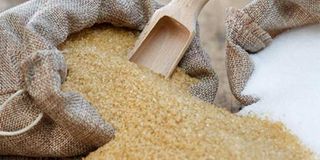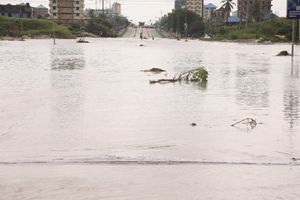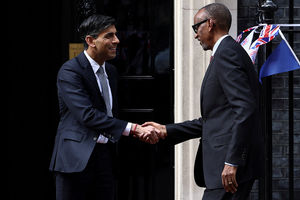Government backtracks on order banning sugar imports

What you need to know:
- On Tuesday last week, Mr Hasunga announced the government would stop issuing import permits to local sugar producers on the grounds that they were concentrating more on importation than expansion of their production.
Dar es Salaam. The Minister for Agriculture, Mr Japhet Hasunga yesterday retracted his earlier statement banning local sugar manufacturers from importing the product.
On Tuesday last week, Mr Hasunga announced the government would stop issuing import permits to local sugar producers on the grounds that they were concentrating more on importation than expansion of their production.
But in an interesting rejoinder, Mr Hasunga backtracked yesterday, saying local manufacturers: TPC Limited, Kilombero Sugar Company Limited, Kagera Sugar Company and Mtibwa Sugar Company, would be given permits to import the sweetener to fill a gap of 215,000 tonnes in demand for domestic consumption.
He said a recent assessment, involving local sugar companies has shown that the companies were commited to increase sugar production to 345,000 tonnes per year in total for direct domestic consumption.
“We are now satisfied with the companies’ strategic plans to increase sugar production and that is why we have decided to allow them to supply and import sugar for domestic consumption in the country,” said Mr Hasunga when he spoke to journalists yesterday.
Tanzania produces an average of 300,000 tonnes of sugar per year against a total demand of 670,000 tonnes, of which 515,000 tonnes is for domestic consumption and 155,000 tonnes for industrial use.
Mr Hasunga expressed optimism that the completion of Mkulazi Sugar Project and one more project by Bakhresa Group in Bagamoyo, would increase Tanzania’s sugar production capacity by 250,000 tonnes and 100,000 tonnes per year respectively.
“Until February 15, this year, we had a stock of 129,228 tonnes of sugar in the country. The actual demand for sugar is 38, 000 tonnes per month,” said the minister.
Mr Hasunga further pointed out that the new projects would also create jobs for Tanzanians upon their completion, revealing that the Bagamoyo-based Bakhresa firm will start sugar production by 2021. The new government position comes after local producers rejected reasons given by the minister, when announcing the ban.
Kilombero Sugar chairman Ami Mpungwe told The Citizen last week that Mr Hasunga’s reasons for banning local sugar producers from importation, did not hold water.
He said last December the company’s board approved expansion plans of doubling annual production from the current 125,000 tonnes.
Mr Mpungwe said the government through the ministries of Finance and Planning; Agriculture and that of Industry and Trade, was aware of the firm’s expansion plans.
“We are willing and able to invest more. We are just waiting for government’s approval,” he said, banking his confidence on the well established company’s shareholders.
He said with the expansion plan, the firm would increase consumption of sugarcane from out growers from the current 40 per cent to 60 per cent.
“We have been forced to import to stabilize the market so we have no problem with who is to import sugar given that our main business is not importation but rather production,” said Mr Mpungwe, noting however that the producers’ concern was that the product should be imported at the right time and in right quantity.
TPC Ltd sales and marketing executive officer Allen Maro shared similar sentiments when he spoke to The Citizen last week, refuting the claims that with importation local manufacturers were abandoning expansion of their production.
“Imported sugar is subjected to several taxes and charges including import duty of 25 per cent, VAT (Value Added Tax), railway levy, sugar development levy, freight charges, just to mention but a few…It is more profitable to produce locally than it is to import,” noted Mr Maro.




